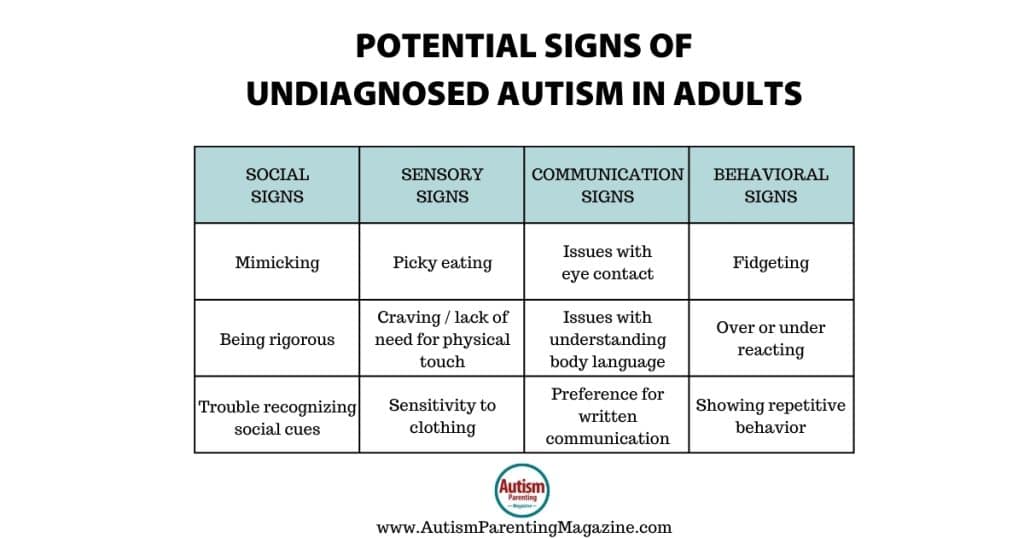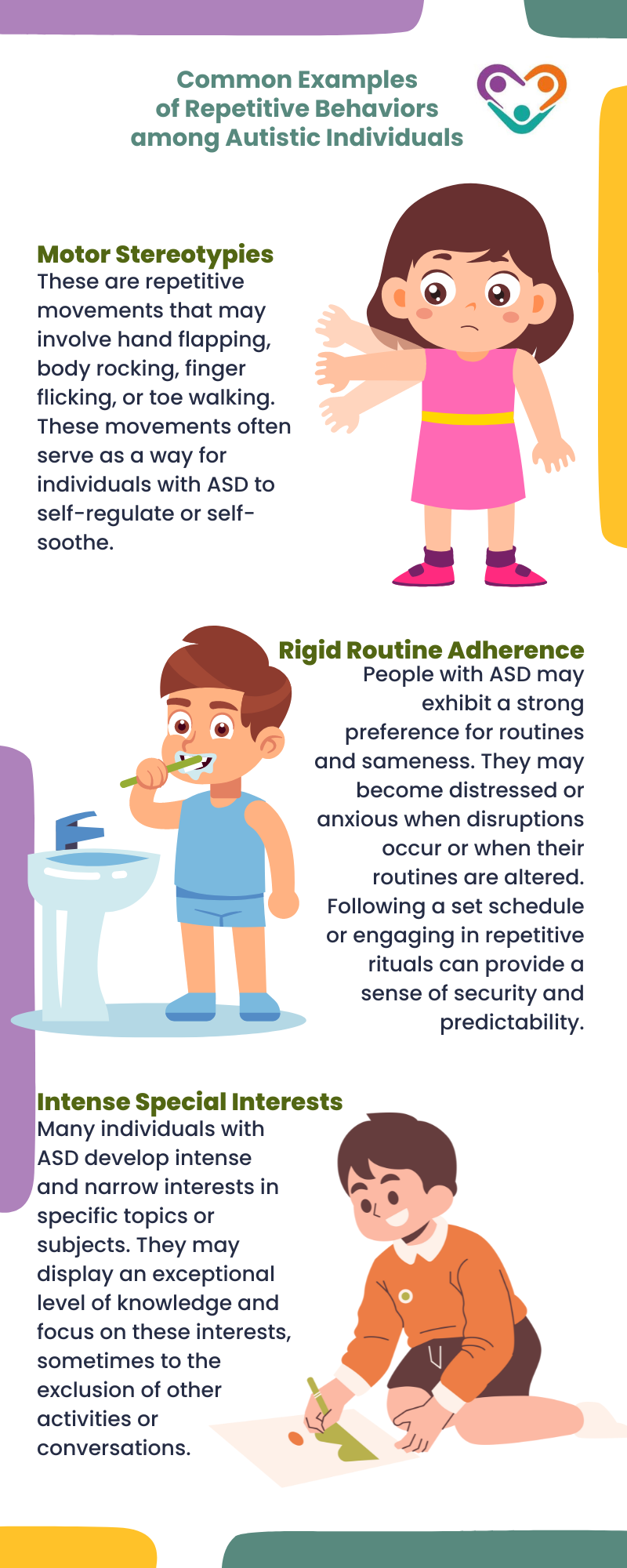What to expect when working with an Autism Behavioral Therapy program practitioner
What to expect when working with an Autism Behavioral Therapy program practitioner
Blog Article
Understanding the Influence of Behavioral Autism on Life and Social Interactions
You may not realize just how deeply behavioral autism affects day-to-day life and social interactions. People on the range usually browse a world filled with communication difficulties and sensory overload. These obstacles can lead to irritation and isolation, influencing their partnerships and overall health.
Specifying Behavioral Autism and Its Features
Behavioral autism, usually described as autism range condition (ASD), encompasses an array of conditions identified by difficulties in social communication, communication, and recurring habits. You could discover that people with ASD often struggle to translate social signs, which can bring about misunderstandings in discussions. They may discover it tough to establish eye call or participate in little talk, making social situations really feel overwhelming.
Interaction difficulties can manifest in various ways, from postponed speech development to a preference for using fewer words. By identifying these traits, you can foster an environment that promotes acceptance and encourages effective communication, helping individuals with autism thrive in their daily interactions.
The Spectrum of Autism: Understanding Variability in Actions
Autism spectrum problem (ASD) isn't a one-size-fits-all medical diagnosis; it varies widely amongst people. You may run into people who are very spoken and engage conveniently in discussions, while others might prefer singular activities or communicate non-verbally.
Moreover, the way people with ASD reply to sensory input can vary greatly; some could be overwhelmed by loud noises or intense lights, whereas others thrive in boosting atmospheres. The spectrum additionally consists of differences in social communications; some individuals may struggle to analyze social hints, while others browse social settings with relative simplicity. Understanding this variability is important, as it helps you appreciate each person's special experience and tailor assistance to their specific requirements, fostering an extra inclusive atmosphere for every person.
Communication Difficulties Faced by People With Autism
When you interact with individuals on the autism spectrum, you might discover their one-of-a-kind communication difficulties. They often deal with troubles with both verbal and nonverbal hints, which can affect their social interactions. Recognizing these barriers is necessary for fostering much better links and assistance.

Verbal Interaction Troubles
Many individuals on the autism spectrum experience verbal interaction troubles that can considerably impact their everyday communications. You could find it challenging to reveal your ideas, sensations, or requires plainly. This can lead to irritation for both you and those around you, as misconceptions occur. You may have a hard time with launching conversations, preserving a subject, or recognizing subtleties in speech. Typically, you may favor making use of easy language or recurring expressions, which can restrict your capacity to involve in much deeper conversations. Your speed, tone, or quantity may not straighten with social assumptions, creating others to misunderstand your purposes. Identifying these challenges can help you and your support network establish methods to enhance communication and foster better connections with others in your every day life.
Nonverbal Interaction Barriers
Spoken interaction isn't the only difficulty individuals on the autism range face; nonverbal communication barriers can be equally as substantial. You could locate it difficult to analyze body language, faces, and eye get in touch with, which are necessary for effective interaction. These challenges can bring about misunderstandings or misinterpretations of social signs, making communications feel overwhelming or confusing. You may have a hard time to share your own feelings with nonverbal methods, leaving others not sure of your feelings or intents. This detach can develop feelings of isolation and frustration. Acknowledging these obstacles is important for fostering understanding and empathy in your communications. By dealing with nonverbal interaction, you can locate techniques to enhance your social experiences and boost your overall lifestyle.
Social Interaction Effects
Social interactions can frequently really feel frustrating due to the distinct interaction difficulties encountered by people with autism. Acknowledging these challenges can aid you discover strategies to boost communication, such as exercising social skills in secure setups or using aesthetic aids. Recognizing your requirements permits you to navigate social communications with higher self-confidence and simplicity.
Social Interaction and Connection Building in Autism
While structure relationships can be challenging for people with autism, understanding their one-of-a-kind perspectives and interaction designs can foster purposeful connections. You could discover that lots of individuals on the spectrum like direct communication and might have problem with social hints or small talk. By being simple in your communications, you can assist create an atmosphere where they really feel comfy.
Make the effort to observe and listen exactly how they share themselves. This insight can guide you in steering conversations extra successfully. Involving in shared interests can likewise work as a bridge to much deeper connections. Whether it's a pastime, a favorite show, or a shared interest, these usual threads can open doors to friendship.
Daily Life Regimen: Navigating Difficulties and Approaches
Navigating day-to-day live regimens can be especially testing for people with autism, particularly when unanticipated adjustments occur. You might locate comfort in having an organized timetable, as it aids you expect what's following. When disruptions take place, it's regular to really feel overwhelmed or distressed. To navigate these difficulties, think about executing visual schedules or lists. These tools can offer clarity and reassurance.
Establishing a regimen that includes sensory breaks can also be useful. You can prepare short breaks throughout your day to reenergize. It's important to communicate with those around you, allowing them understand your choices and requirements. This aids produce an understanding setting.
Finally, method mindfulness strategies to take care of tension and anxiety. Simple breathing exercises or basing techniques can make a significant difference. By including these strategies, you can enhance your daily regimen and minimize disturbances, making life really feel much more convenient.
Staminas and Capacities of Individuals on the Autism Spectrum
Understanding day-to-day live regimens is simply one aspect of the autism experience. Several individuals on the autism spectrum possess impressive strengths and capabilities that establish them apart. You might discover that your focus to detail is exceptional, enabling you to succeed in tasks that require precision and emphasis. Your ability to think outside the box can bring about innovative services in different circumstances.
Moreover, your memory skills frequently radiate, particularly in locations of passion. Autism Discover More Spectrum Therapies. This knack for preserving details can make you an important source in areas like modern technology, scientific research, or art. You might likewise display strong aesthetic thinking, enabling you to imagine complex concepts and solve problems artistically
Furthermore, your special point of view on the world can cultivate compassion and understanding in others, enhancing social interactions. Embracing these toughness not only increases your self-confidence check yet likewise helps others value the varied talents you offer the table.
Creating Inclusive Atmospheres for Individuals With Autism
Producing comprehensive settings for individuals with autism begins with making sensory-friendly areas that deal with their one-of-a-kind requirements. You can also cultivate chances for social interaction, aiding to develop friendships and links. By making these modifications, you'll add to a much more inviting environment for every person.
Designing Sensory-Friendly Spaces
While making sensory-friendly rooms, it's essential to mirror on the unique requirements of individuals with autism. Integrate quiet zones where people can charge and pull back when overwhelmed. Include visual timetables or clear signs to assist people browse the area confidently.
Advertising Social Communication Opportunities
Designing sensory-friendly spaces not just addresses private comfort yet additionally establishes the phase for significant social interactions among individuals with autism. To advertise these communications, develop inclusive environments that invite involvement. Organize organized activities, like art classes or team games, that urge partnership without overwhelming sensory input. Usage visual help and clear interaction to help everyone involve easily. Encourage peer mentoring, pairing people with autism with supportive peers that can lead them via social circumstances. Additionally, consider organizing normal area events that commemorate neurodiversity, promoting approval and understanding among all individuals. By executing these strategies, you can boost social opportunities, helping people with autism build relationships and enhance their social skills in a risk-free, inviting atmosphere.

Regularly Asked Inquiries
Just How Can Friends Support Somebody With Behavioral Autism?
You can support a good friend with behavioral autism by being patient, listening actively, and appreciating their limits. Involve in tasks they enjoy, communicate openly, and create a comfortable environment where they feel valued and comprehended.
What Resources Are Readily Available for Moms And Dads of Kid With Autism?
You can discover numerous resources for parents of children with autism, consisting of support groups, instructional internet sites, and neighborhood social work. Linking with other moms and dads can likewise offer valuable understandings and shared experiences to assist navigate obstacles.
Can Behavioral Autism Change Gradually?

Yes, behavioral autism can alter with time. You could discover changes in interaction, social skills, and actions as your child expands. Early treatment and support usually play important duties in these developmental modifications.
Just How Do Sensory Sensitivities Impact Day-to-day Live?
Sensory sensitivities can make daily experiences frustrating. You might deal with brilliant lights or loud sounds, leading to visit this site stress or avoidance. Locating environments that fit your demands can significantly enhance your convenience and total every day life.
What Prevail Misconceptions Concerning Behavioral Autism?
You could think behavioral autism only influences interaction abilities, however it's even more facility. Several assume individuals lack empathy or intelligence, which isn't true. Comprehending these misunderstandings assists foster approval and assistance for those on the range.
Behavioral autism, commonly referred to as autism range disorder (ASD), includes a range of conditions characterized by challenges in social interaction, communication, and repetitive behaviors.Social communications can frequently feel overwhelming due to the unique communication challenges faced by individuals with autism.Creating sensory-friendly rooms not just addresses private comfort but also sets the phase for purposeful social communications among people with autism. Encourage peer mentoring, pairing people with autism with encouraging peers who can direct them with social situations. By applying these techniques, you can enhance social possibilities, aiding people with autism develop friendships and reinforce their social abilities in a safe, inviting setting.
Report this page